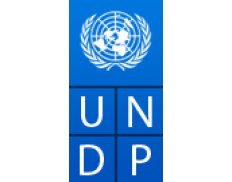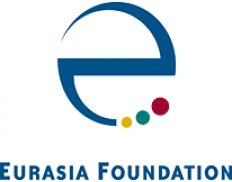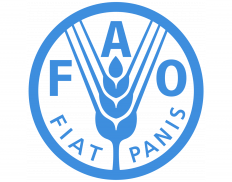Details
Description
Background
Uzbekistan faces major challenges caused by climate change including desertification, water scarcity, more frequent draughts, and depletion of the Aral Sea. Climate risks are exacerbated in the country by both the average temperatures rising and mountain glaciers, a vital source of drinking water, melting at a faster pace than the global averages. While forests account for only 7.7 percent of the country’s territory according to the UN FAO, they play a major role in reversing desertification, protecting biodiversity and landscapes and are a vital storehouse of carbon.
To combat the negative impact posed by climate change, the Government of Uzbekistan has put forward an afforestation initiative, called Yashil Makon/Green Nation in November 2021. This nation-wide afforestation program was added to the Strategy for Developing the New Uzbekistan during 2022-2026 and envisages expansion of forest cover area in the country by planting 200 million trees annually. The Green Nation Programme foresees a comprehensive scheme of greening efforts with engagement of various public agencies and research community. In order to realize this ambition, the Government anticipates establishment of the Green Nation Fund that is set in the newly drafted National Development Strategy (2022-2026).
At the same time, it is essential to conduct a thorough feasibility study and subsequently prepare a comprehensive Greening Master Plan prior to any massive afforestation/revegetation. This is particularly necessary to identify important ecological zones, types of ecosystems, expected roles and services of the restored ecosystems to define planting targets, deciding which locations are suitable for planting trees, shrubs, or grass, setting up the monitoring system, determining the land ownership issues, planning the watering infrastructure, identify future-proof tree species etc. In addition, such a masterplan would feed into a forest and even urban management plan with clear targets. Ideally, it should also give an indication/estimate of required resources required for its implementation - financial and human resources investment and logistics.
Moreover, an efficient coordination system is needed to align the efforts of various stakeholders. With different institutions involved in different phases of the program implementation, such as planting, infrastructure development, maintenance and management, financing, monitoring, there is a critical need to ensure that all actions are well synchronized and coordinated. A strong leadership and coordination system needs to be in place to achieve the goals of the program.
Finally, a well established financing model needs to be in place for this program, it management to be funded in the long term as planned. The Government has established the Green Nation Fund that will be aimed at supporting the afforestation program. Yet, the ambitions of the afforestation program are high. This means that government investment alone cannot meet the needed funds, especially for the maintenance of the restored ecosystems. The issue is complex, and Investment and financing sources must be broadened to raise more non-governmental funds including international financing, private domestic financing into forestry to meet the needs for sustainable forest management and forestry development. Introducing carbon offset trading will help to further easing the burden from the government.
The current poition aims at conducting a feasibility study to design a comprehensive Master Plan for the Uzbekistan’s Green Nation Program and possibly other afforestation/revegetation activities through covering the following work:
Review the existing national policies and regulations on afforestation and urban greening activities.
Review the country’s zoning plans including ecological zones and ecosystem/forest types
Review the classification of suitable plant species compositions.
Review the challenges and opportunities in implementing the afforestation/revegetation and urban greening activities, including increase of pressure to limited water resources, and potential environmental benefits and risks.
Identify key interests, parties and areas of afforestation /revegetation and urban greening activity.
Assess key land ownership/tenure issues (legal, regulatory, financial, etc.) related to afforestation and greening activities.
Assess the required resources: short, medium, long-term – starting with current situation: financial resource estimate for a 5-year massive afforestation and regeneration project; existing water infrastructure and possible future watering infrastructure needs, regeneration material production (nurseries)- current and future needs; available and possible future human (including education) and technical resources, and available and future needs in tree care services.
Propose a basic concept of a Master Plan with potential structure, governance mechanism, a monitoring system, resources and commitments.
Explore potential coordination mechanisms for implementation of a Master Plan.
The International Consultant will be responsible for the accomplishment of the following tasks and activities under the direct supervision of the Programme Manager, Environment and Climate Action Cluster Leader in UNDP Country office
ompetencies
Strong analytical and advisory capacity, including the ability to analyze and advise innovative solutions
Strong data collection, communication, research, and writing skills
Client-orientation and excellent interpersonal and cross-cultural communication skills
Ability to use information and communication technology as a tool and resource
Required Skills and Experience
Education: University degree (Masters or above) in in the field of Economics, Development Economics, Forestry or forest management, Public Policies, Environment, Social Policies, Development Studies, or other relevant fields
Experience:
At least 5 years of experience in sustainable forest management, monitoring and/ planning, the management of afforestation programs/projects and wide nation campaigns in high-quality policy advisory roles, including advisory roles on environmental issues, biodiversity conservation, economy, sustainable development.
Good understanding of policymaking, governance, and related mechanisms and tools.
Some knowledge of work related to combatting desertification, dust and sandstorms by afforestation and related activities such as soil and sand dune fixation, water harvesting, pasture development, etc.
Some practical experience in biodiversity conservation projects.
Excellent understanding of green standards and principles is required.
Good understanding of gender aspects and gender mainstreaming into the development and business processes is required.
Proven experience in preparation of assessments and feasibility studies is required.
Previous experience with a development partner or government will be an asset.





